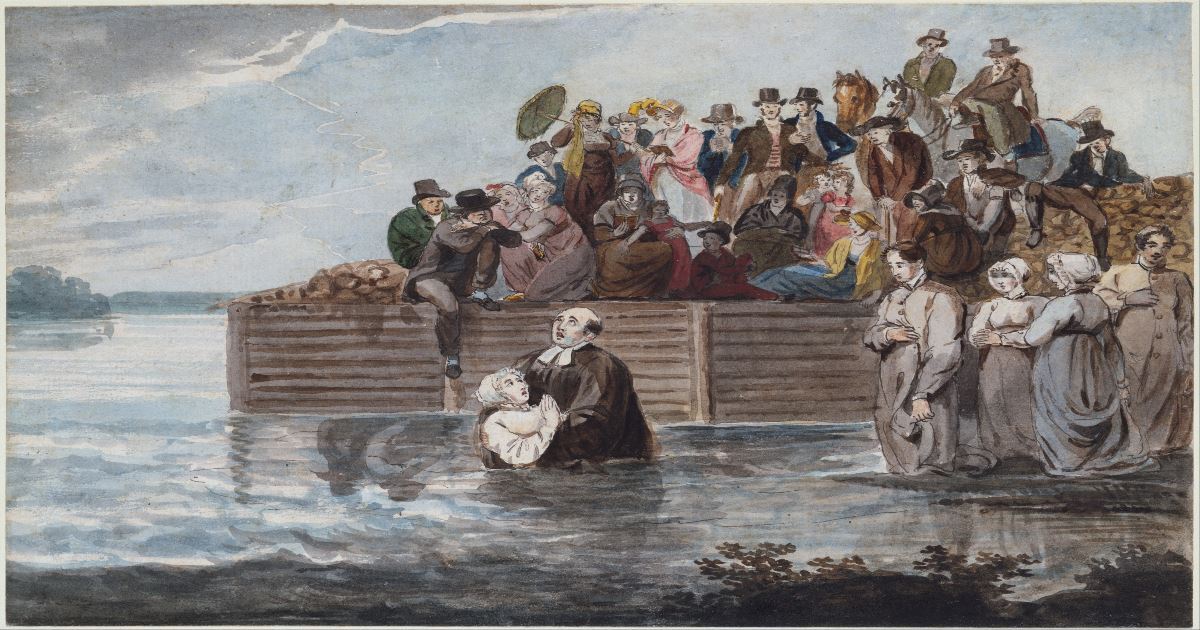I very much enjoyed reading Benjamin Bjorkman’s “Christianity of the Third Millennium.” Based on the PC games Ben and I enjoy, one can surmise that we both find it fun to look into the future with an eye toward strategy.
At the same time, I do wish to voice a few criticisms of his article, and add a suggestion. Firstly, the article focuses on Christianity within developed countries. In and of itself, there is nothing wrong with this; however, one cannot read it as a comprehensive view of Christianity in the Third Millennium. As a matter of fact, huge populations in Africa and Asia live in poverty and have no voice in a democratic system. In many ways, these worlds still struggle with problems contemporary to Jesus’ life. It remains the calling of faithful Christians around the world—including in the West—to follow Jesus’ teaching by proclaiming good news to the poor, setting the oppressed free, and proclaiming the year of the Lord’s favor. Christians have done amazing work in furthering this commission, and world poverty has decreased like never before. Still, there is more work to be done, and we cannot shift our focus away from these mandates, even if they may seem less relevant in the developed world. I’m sure Ben agrees with me here; I only want to point out that these mandates remain in play.
At the heart of the article is the lament that “We have failed to translate the Bible through all times and places to apply God’s teachings to the modern day.” I agree, and I think Ben may be correct in attributing unhealthy modern “spiritual wanderings” to Christian separatism. Christians must involve themselves in building up a God-glorifying culture for the wider population. Teddy Roosevelt’s “Man in the Arena” speech applies well to modern Christians:
“It is not the critic who counts… The credit belongs to the man who is actually in the arena, whose face is marred by dust and sweat and blood; who strives valiantly; who errs, who comes short again and again, because there is no effort without error and shortcoming; but who does actually strive to do the deeds; who knows great enthusiasms, the great devotions; who spends himself in a worthy cause; who at the best knows in the end the triumph of high achievement, and who at the worst, if he fails, at least fails while daring greatly, so that his place shall never be with those cold and timid souls who neither know victory nor defeat.”
All this is true. However, I do not think it right to dismiss Christian separatism as (it seems) Ben does:
“While the Amish are the most cartoonish example, there are many families who have sworn off video games, who abhor Dungeons and Dragons and its ilk, who isolate themselves from everything under the pretense of, perhaps, a singular verse in the Bible.”
The Amish have their problems, but there is much to respect about them, and it would be wrong to consider Amish as the absurdum to which one reduces “families who have sworn off video games.” The Amish may, indeed, form a community pleasing to God and a testimony to the world of God’s sufficiency in an increasingly materialistic world. It is not impossible to be in the world when living under a rock.
It may, in fact, be wise for Christians to practice forbearance as adaptation. I do not mean that engaging with video games or Dungeons and Dragons is sinning, and I do not mean that all Christians must forbear from the same modern elements. Still, as a means (but, crucially, not the means) of forming communal identity, forbearance from less wholesome modern activities may be useful. Mature Christians whose identities are grounded in a purer lifestyle of worshiping God may then engage more fully with the modern world.
In modern times, Christian communities must seriously consider the Benedict option. Neo-Anabaptists may provide a useful example. Christian havens like monasteries and L’Abri will become increasingly important in cultivating a purer Christian populace. The Body of Christ must include a functioning liver.
I want to end this with a suggestion. Evangelical Christians have been losing power and prominence. They are no longer a moral majority, and no near-sighted political victory will bring that back. Nevertheless, evangelicals have built a worthy subculture, even if many fail to live up to its demands. So, here is my suggestion: evangelicals should look to learn from the Modern Orthodox Jewish community. The Jewish community has eons of experience living as the minority. Orthodox Jews live a lifestyle riddled with rules and regulations as they seek to apply Torah to a modern setting through continuity of tradition. Abhorring Dungeons and Dragons or Harry Potter may seem arbitrary, but Orthodox Judaism will always one-up evangelical Christians in seemingly arbitrary regulations. Yet, unlike Haredi Jews who tend to live in insular communities, Modern Orthodoxy confronts the world in obedience to Torah. Somehow, Modern Orthodox Jews have found a way to keep kosher, pray three times a day, keep Shabbat, and much more, all the while making great contributions to the ranks of such high-performance professions as lawyers, doctors, and professors. The Modern Orthodox Jewish community bears its struggles, but there is much for Bible-based Christians to learn from Modern Orthodoxy.
Anyway, I appreciate Ben’s article, which he has followed with a wholesome article on mass production. I commend his efforts and look forward to his upcoming articles as he further explores Christian engagement with contemporary society.


Leave a Reply